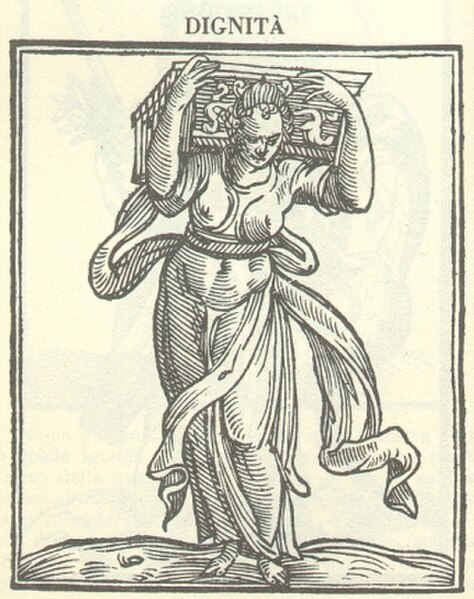Defamation is a communication that injures a third party's reputation and causes a legally redressable injury. The precise legal definition of defamation varies from country to country. It is not necessarily restricted to making assertions that are falsifiable, and can extend to concepts that are more abstract than reputation – like dignity and honour. In the English-speaking world, the law of defamation traditionally distinguishes between libel and slander. It is treated as a civil wrong, as a criminal offence, or both.
Front page of La Vie Illustrée on 25 July 1902. Mme Camille du Gast stands in court during the cases of character defamation by the barrister Maître Barboux, and the Prince of Sagan's assault on Barboux.
Dignity in some of its modern usages has come to mean the right of a person to be valued and respected for their own sake, and to be treated ethically. In this context, it is of significance in morality, ethics, law and politics as an extension of the Enlightenment-era concepts of inherent, inalienable rights. The term may also be used to describe personal conduct, as in "behaving with dignity".
Woodcut from Cesare Ripa's Iconologia depicting the Allegory of Dignity


